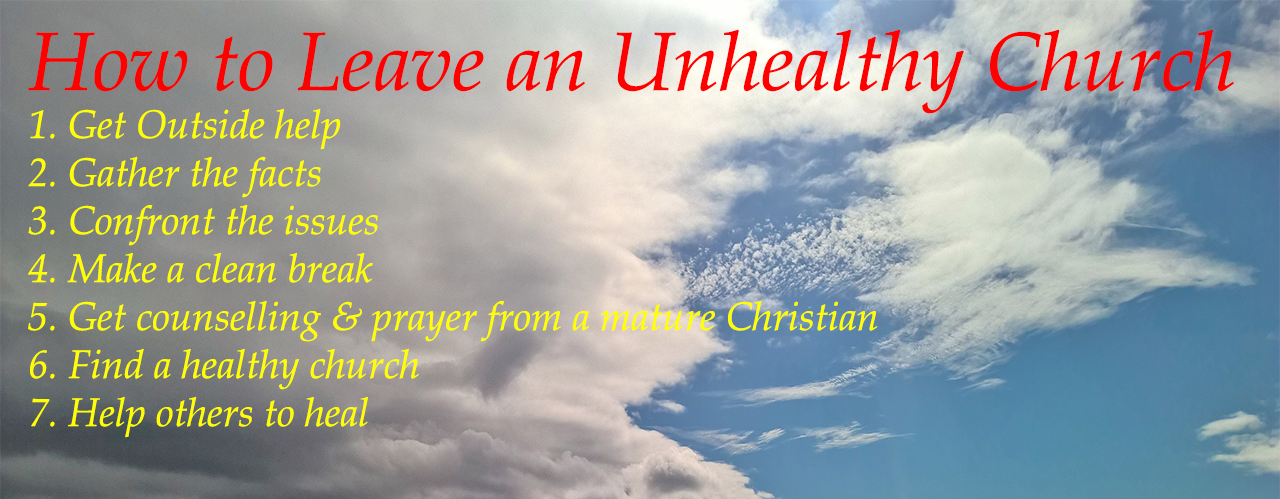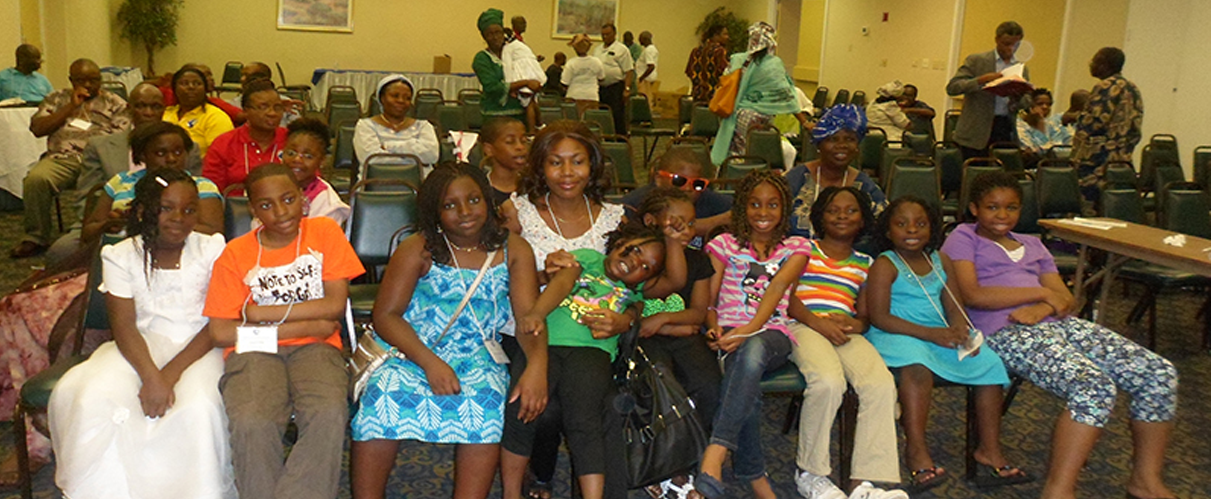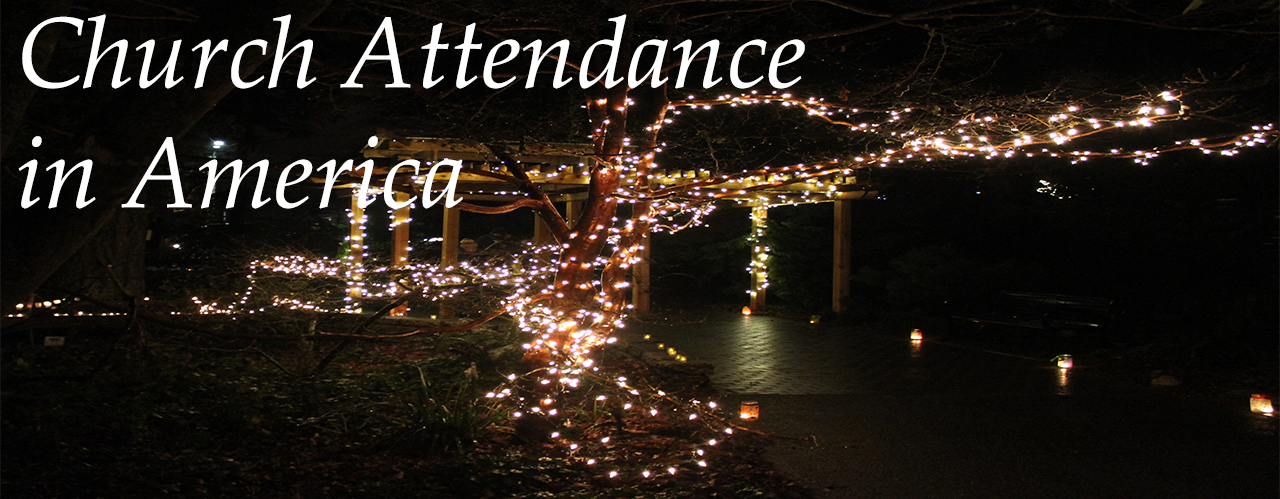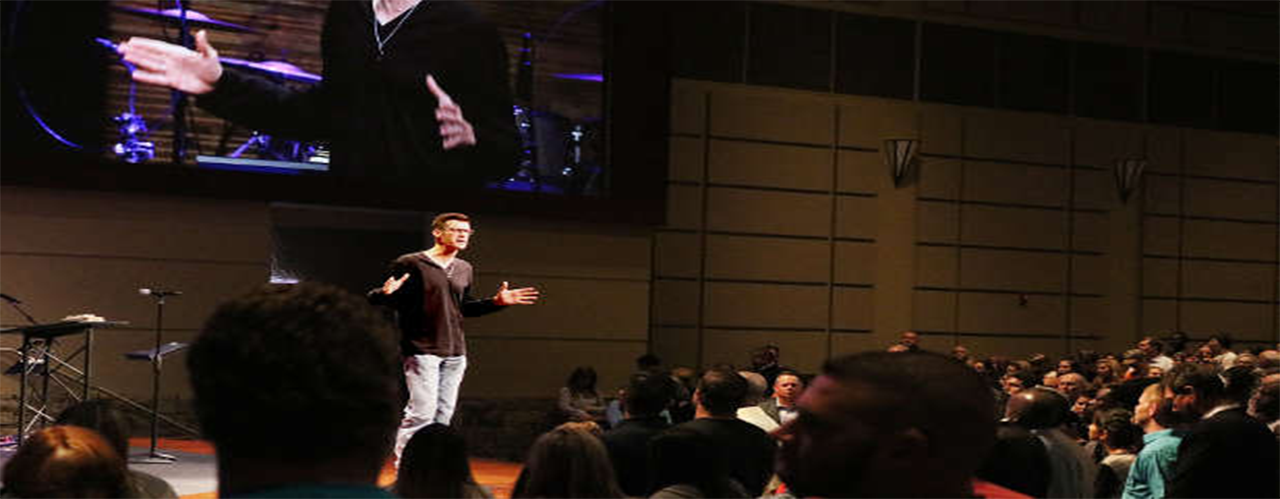Can love create a necessary and sufficient condition resulting into having the kingdom of God (as our inheritance)? (Photo | EMS OF ECWA Widows Seminar)
The idea of cause and effect is very important to all of us. We want to know if the action of X has brought about what happens to Y. In this case, we want to know if the action is a necessary cause for what happens to Y. If it is not, could it be a contributory cause? We may also want to know if it is a sufficient cause or not, because something can be necessary and not be sufficient to create the condition for something to happen. For an example, if your car is not of the electric type, you must have gasoline in it before it can start. Gasoline is very much necessary but by itself is not sufficient for your car to start. Other things must contribute to that condition. We need something that is both necessary and sufficient to bring about something. For a student to graduate with a bachelor degree in sociology, one necessary thing he or she has to do is to declare for a major in that discipline. However, declaring a major does not create a sufficient condition for graduation. Something can be necessary but may not be sufficient to get us what we want. Just one academic core requirement not fulfilled by student can prevent that student from graduating, even if he exceeds the total number of credit hours for graduation. Love for all people is the most powerful requirement that God wants us to fulfill in the year 2016.
Christianity has many requirements for its adherents, including the fulfillment of the Ten Commandments. While these requirements are necessary, they cannot qualify us for the inheritance of God’s kingdom. Our good works cannot give us eternal life. Faith without work is empty or nothing. Thus our good deeds may be necessary but not sufficient. Love satisfies both conditions (necessary and sufficient). Logic explains a necessary cause as a condition that must be present if a particular effect is to occur. This is different from the explanation for a sufficient condition, that is, one thing by itself bringing about an effect. This is what love is to the kingdom of God. Love conquers it all! No amount of “good” works or religious activities will make us inherit the kingdom of God. We are discussing the relationship between two things in which one is claimed to affect the other. The issue here is about the relationship between having love and inheriting the kingdom of God.
The question is asked, “Can love create a necessary and sufficient condition resulting into having the kingdom of God (as our inheritance)? Most people will definitely say, “Yes.” John 3:16, a most quoted Bible verse in evangelism, answers the question in the affirmative as Jesus said, “For God so loved the world that He gave His one and only Son, that whosoever believes in him shall not perish but have everlasting life.” Love is the answer.
A few people’s encounters with Jesus explain how important love is to the kingdom of God. Without it, there is no Christian life. No eternal life. No kingdom. He who knows no love does not know God because God is love. In other words, to know God is to love. At the birth of Jesus Christ angels celebrated with the world as they sang, “Glory be to God in the highest, and on earth peace to men on whom his favor rests” (St. Luke 2:14). It is God’s love that we are celebrating at Christmas. It is sad for anyone who doesn’t have it. Human beings must make every effort to find the truth. When they find it, they find the truth, Jesus the prince of peace. A Bible teacher in his imaginative power told the story in a different way:
Once upon a time God said that the world must know the truth about his love. So, from His throne He cast the Truth down into the world. Upon landing, the Truth scattered into uncountable fragments. God asked human beings to search for the pieces and fragments.
Jesus came and claimed to be the Truth, the Way and the Life and that no one comes to the Father except through him. His body was broken and his blood shed for us that we ay find the truth of God’s love. Jesus brings to us love, peace, and joy. That love gives life and it is required that we love as Christ loves us. The mistake, in fact, an error of reasoning that is common today is to believe that one can have joy without having love and peace. One cannot have joy until one has love and what follows is peace. So, to have joy, we must have God, the Giver of love and peace. Who brings down that peace? Jesus, who said, “Peace I leave with you; my peace I give you. I do not give to you as the world gives” (St. John 14:27). You must have seen some people around you who would like to have joy but without love, and of course, without peace. They are so screwed up as to believe that they can steal someone’s joy or peace and make it their own in order to have joy. They believe that what they have stolen can give them joy. The one who steals from the other has no love and peace that should have come from Jesus the prince of peace. Jesus said, “Watch out! Be on your guard against all kinds of greed; a man’s life does not consist in the abundance of his possessions” (St. Luke 12:15). God’s love gives peace and He asks us for that love.
Prophet Micah proclaimed what God wanted, “He has shown you, O mortal, what is good. And what does the Lord require of you? To act justly and to love mercy and walk humbly with your God” (6:8). Acting justly, showing acts of mercy and walking humbly with God means nothing if one does not love God. In fact, it is the love of God that makes one have mercy and walk humbly with God. Today many people engage with works of mercy but in some cases self is at the center; ungodly motives are involved. God called Moses, “my humble servant,” because all that Moses did as a leader for Israel did not arise from ulterior motives. They were all for God and His kingdom. God asks that we show love in the year 2016. If we are truly God’s people, loving becomes a lifestyle. We love not because of anything but because God loves us first and to whom much is given much is expected.
The Ten Commandments are reduced to one Law. This is the Law of love and life that has been God’s standard for communities. The laws were written originally on two slates. The commandments are in two parts. The first part deals with our relationship with God and the second deals with our relationship with one another. It is love and not laws that make the relationship positive. It is a covenant of love. Covenant relationship between husband and wife cannot work if there is no love. Man’s inhumanity to man that has been on the increase today is as a result of not having love. Political injustice, war, terrorism, violence, torture, ethnic cleansing, women and children trafficking, rape, jealousy, armed robbery, and the likes, come upon us as a result of the absence of love in our human society. The African Methodist Episcopal (A.M.E.) has captured the truth of love being the binding agent for God and human beings. The motto says, “God our Father, Christ our Redeemer, the Holy Spirit our Comforter, humankind our family.” God created humankind as a family. This religious motto brings the divine community to bear upon the human community and all is made possible by love.
Conclusion: What does God ask of us in the year 2016? It is Christian Love for all people. Jesus said, “A new commandment I give you: Love one another. As I have loved you, so you must love one another. By this all men will know that you are my disciples, if you love one another” (St. John 13:34). The greatest commandment for 2016 for all human beings is this: Love the Lord your God with all your heart and with all your soul and with all your mind and with all your strength. The second is this: Love your neighbor as yourself. There is no commandment greater than this” (St. Mark 12:30-31). Show your love for God in the year 2016 and thereafter. May God give you the spirit and the power to show your love for Him all the days of your life and you will find goodness and mercy pursuing you all the time.
Have a blessed Christmas and a happy new year!
Rev. Dr. Daniel Adebayo Iselaiye has been educator for most of his adult life. Some of his religious activities include sporadic teaching/preaching engagements at several Colleges and Universities across the U.S.. He is now associate professor of religion and philosophy; and the Chairman of ECWA USA DCC. You can reach him via email




















